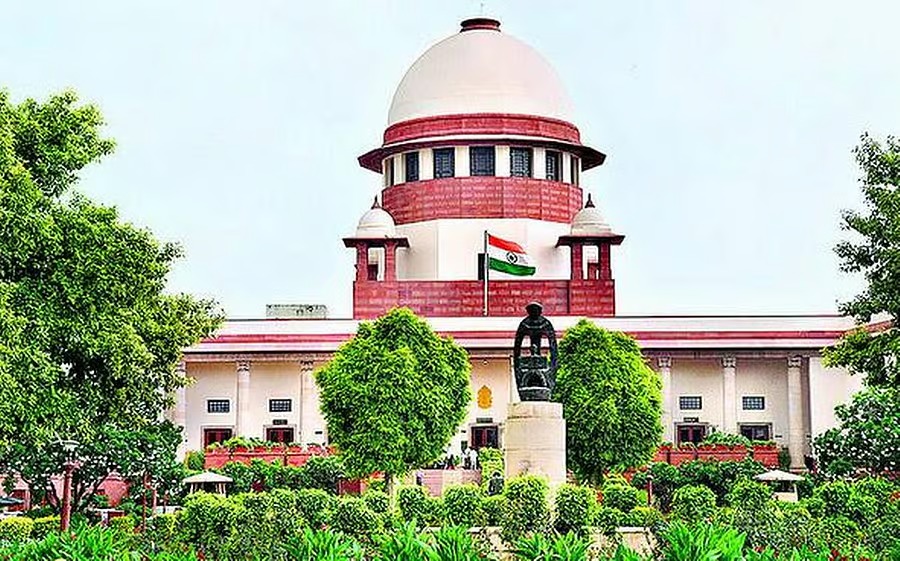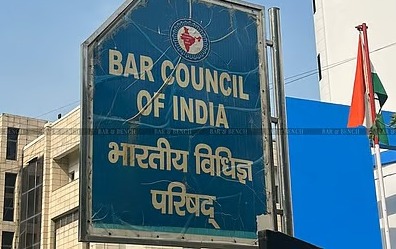1. The defendant appellant in this suit instituted a rent suit against one Buzlar Sobhan Chowdhury. He obtained a decree and in execution put up a certain jote to sale as being the property of Buzlar Sobhan. This property was purchased by the plaintiff. Subsequently a certain Mrs. Dillany brought a suit, in which she made the present plaintiff and the present defendant parties, for a declaration that this jote belonged, not to Buzlar Sobhan Chowdhury, but to herself, and in this suit she obtained a decree. The plaintiff then brought this suit for recover, of the money which he had paid for his purchase. The suit has been decreed and the defendant appeals.
2. The first point taken on behalf of the appellant is that the suit itself is not maintainable, and reliance is placed first on the decision in Dorab Ally Khan v. The Executors of Khojah Moheeooddeen 3 C. 806. That
3. decision, however, was passed under the old Code of 1859 and proceeded principally on the doctrine of caveat emptor. It is impossible, however, to hold that doctrine has the same effect under the Code of. 1882 that it had under the former Code. Section 313 of the present Code enacts that a purchaser may apply to have the sale set aside on the ground that the person whose property purported to be sold had no saleable interest therein. No such provision is found in the former Code and the addition of this section clearly goes far to weaken the effect of the doctrine of caveat emptor in so far as it might be applicable to execution sales.
4. Reliance has also been placed on the decision in Sowdaminee Chowdhrain v. Kishen Kishore Poddar 12 W.R. (F.B.) 8. In that case it was held that a purchaser can recover his purchase money only when the sale is set aside summarily for irregularity or the like under the provisions of the Act, and not when a third party succeeds in establishing his title to the property sold. But this decision also was passed under Regulation VII of 1825 and in the Code of 1882 the law has been considerably changed. Section 315 lays down that when a sale of immovable property is set aside u/s 310A, 312 or 313, Or when it is found that the judgment-debtor had no saleable interest, then the purchaser is entitled to relief. The use of the disjunctive shows that it is not only when the sale is set aside u/s 313 that the purchaser is entitled to relief; and that being so, it is clear that the decision cited has not the same application under the Code of 1882 that it had under the Code of 1859.
5. Next it is argued that Section 315 was never intended by the Legislature to give to a purchaser denned of the purchased property a right to sue, or any right to relief beyond an application to the execution Court u/s 315. This point, however, has been decided against the appellant in Hari Doyal Singh Roy v. Sheikh Samsuddin 5 C.W.N. 240 and Nityanund Roy v. Juggat Chandra Guha 7 C.W.N. 105.
6. The learned pleader for the appellant relies on the decision in Sundara Gopalan v. Venkatavarada Ayyangar 17 M. 228. But that decision though entitled to the. greatest respect is not of such authority as to bind us '' to differ from the decisions of this Court. The first point taken for the appellant, therefore, in our opinion, fails.
7. The next point taken is, that the Subordinate Judge is wrong in his finding, that the plaintiff had no notice of Buzlar''s want of title. The learned Subordinate Judge says: The evidence, as adduced by defendant''s witness No. 2, that the plaintiff knew prior to his purchase, to the effect that the judgment-debtor had no right in the property, is of a suspicious character. No reliance can be placed on this witness''s statement." He then gives his reasons for disbelieving this witness, and we have no doubt that the learned Subordinate Judge intended to find that, as a matter of fact, the plaintiff did not know, prior to his purchase, that the judgment-debtor had no right to the property. This is a finding of fact with which we cannot interfere in second appeal.
8. The third point taken is, that Buzlar Sobhan and the defendant''s lessors ought to have been made parties to the suit. No issue, however, was raised on this point, nor are we satisfied that there was any necessity for making these persons parties.
9. The fourth point taken is, that the suit is barred by limitation. This point was not raised in either of the Courts below or in the ground of appeal to this Court, but it is, of course, a point on which we must come to a decision. The learned pleader for the appellant relics on the case of Hanuman Kamat v. Hanuman Mandur 19 C. 123 (P.C.) : 18 I.A. 158. That was a case in which a member of a joint family had attempted to sell certain property, but his other co-sharer objected and the sale failed. The purchasers, accordingly, sued for the return of the purchase money, and their Lordships of the Judicial Committee were of opinion that a case of that nature must fall either under article 62 or article 97 of the 2nd schedule of the Limitation Act. Their Lordships held, that if there never was any consideration, then the price paid by the purchaser was money had and received to his account by the vendor. We are unable to distinguish this case in principle from the case before us; and if, as a matter of fact, Buzlar had no right at all to the property that was sold and no delivery of possession in consequence, there was no consideration at all for the purchase money that was paid, and the suit would come under article 62 and would be barred by limitation. But with regard to this point it has been pointed out to us that the learned Subordinate Judge found that the sale was fraudulent. The Subordinate Judge remarks : "I would further add that in the present case there is a distinct allegation in the plaint of fraud which has been substantiated by. copy of judgment, Exhibit 3, so far at least as the decree in execution of which the property was sold is concerned." If the suit be regarded as a suit for relief on the ground of fraud, it would clearly be within time. This question of fraud was not incorporated in the issues although it was raised in the plaint, but it appears to have been raised and discussed in some way or other, because both the Munsif and the Subordinate Judge referred to the point and considered it. The findings, however, on this point are not sufficiently distinct to justify us in dismissing the appeal at once. If, as a matter of fact, the defendant advertised this property for sale as the property of Buzlar Sobhan Chowdhury and invited the public generally to come and bid for it, knowing perfectly well all the time that this property did not belong to Buzlar Sobhan, that undoubtedly would be fraudulent conduct for which the plaintiff or any other member of the public invited to bid who was injured by it, would be entitled to relief. But, as we have said there is no distinct finding to this effect.
10. We think that the proper order to pass in this case is that the suit shall go back to Subordinate Judge for a clear finding on this paint, whether the sale was fraudulent and the plaintiff was induced by that fraud to purchase the property. As this point was not raised in the issues, although it was discussed when the suit was decided, the parties should be allowed to furnish fresh evidence on the point.
11. In conclusion it has been argued that the learned Subordinate Judge was wrong in awarding interest at 12 per cent., but we do not think that we should interfere with his decision on this point.
12. The case will, accordingly, be remanded to the Subordinate Judge for the decision of the point which we have set out above. The Subordinate Judge will return his finding this Court, but on receipt of this finding, the appeal will be finally disposed of by his Court.

